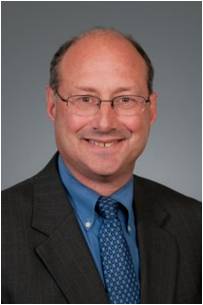Denny Meikleham
Title: Managing Director, HFF
Age: 63
Experience: 33 years
Since joining HFF’s Boston office to lead its New England hospitality practice, Denny Meikleham has helped it capture approximately two-thirds of hotel transactions in the market including nearly $1 billion worth of sales in 2016 alone. Meikleham and HFF Director Alan Suzuki previously worked together at Boston-based Pinnacle Realty Investments, which merged with HFF in 2013. Meikleham has more than three decades in the industry including development for Wichita, Kansas-based Lodgeworks LP, which is building the Archer Hotel at 3rd Ave. in Burlington.
Q: Is this a better environment to buy or develop hotels?
A: Both. If you’re a sophisticated developer building a hotel in the Boston market, you have to be very well-capitalized. It’s not easy to build in Boston. Coming out of the recession, hotel prices increased and got to a point where it was less expensive to build. So we’re seeing an increase in development activity. But it’s still very difficult between construction costs, finding a site and getting it permitted.
For acquisitions, there was a slowdown in the fourth quarter, and there was a big spread between the bid and ask between buyer and seller. That seems to have narrowed a bit. The hotel REITs have started to come back into the market. The biggest problem right now is the lack of hotels on the market. The good news is we haven’t seen a downturn, so you don’t have to sell your hotel. Everyone’s making money.
Q: What are the primary sources of capital?
A: Life insurance companies and CMBS are back for acquisitions. In New England, we’re blessed with a plethora of commercial banks. When our debt people are hired to go find financing, we can go to a lot of places, depending upon the size of the loan. Also the fundamentals of the market are strong because we’re so diversified between tourism and sports and education and medical facilities, not even mentioning the convention center demand. There’s so many things that are driving the market. We’re a top-five lodging market in the country and because of that we’re seeing an increase in foreign sources. We had a little bit of a lull in the fourth quarter because everyone was a little overwhelmed by the election cycle. Beginning in January, the stock market started to take off and people felt better about where we’re headed.
Q: What effect is the Wynn Boston Harbor casino construction having on demand for hotel sites in the Everett area?
A: That whole area – Everett, Medford and Somerville – there’s just a tremendous amount of activity and demand. People were surprised the hotels that have opened up over there have been doing very well. The casino is going to be fantastic for that market. That’s also going to help the airport (hotel) market.
Q: How much additional hotel development can the Seaport District support?
A: The Seaport is obviously a very desirable place to be for a lot of reasons. The number one factor is construction costs. That has become the concern of everybody and they keep going up because of the lack of subcontractors. It takes longer to build things today. Materials are more expensive, and labor costs and unions. If they’re going to get done, they’re going to get done in the Seaport.
Q: Which formats, such as microhotels and select-service properties, are getting the most traction?
A: The most popular right now is select-service. It doesn’t have the meeting space of a larger hotel but the economics are very attractive. You can build a normal-sized hotel to satisfy most travelers and you’re not really relying on food and beverage. It becomes a high-end rooms operation, which is profitable. And the cost to build in Boston is so expensive, you need high margins to justify the economics. If you’re going to build a new hotel in Boston today, you’re close to $500,000 a room.
Meikleham’s 5 Favorite Activities Outside Work:
- Golfing
- Swimming
- Spending the day at the beach
- Cooking
- Skiing









